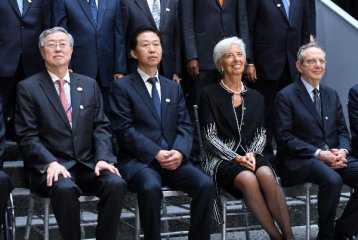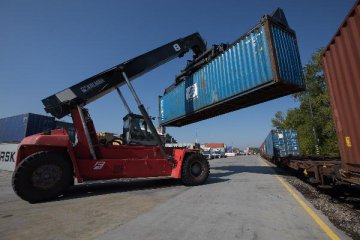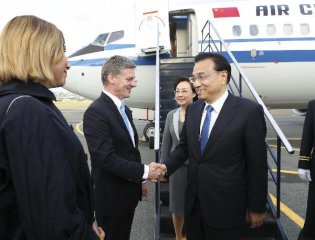
For a Western world that embraces competition, it is not easy to understand the Chinese way of thinking that calls for harmony and stability.
As Beijing is preparing for a high-level forum on the China-proposed Belt and Road (B&R) Initiative that eyes win-win cooperation, some concerns from the West have emerged over China's motives.
The B&R Initiative proposed by China in 2013 consists of the Silk Road Economic Belt and the 21st-Century Maritime Silk Road. It aims to build a trade and infrastructure network connecting Asia with Europe and Africa along and beyond the ancient Silk Road trade routes.
Some media reports say the initiative is not win-win as China "seeks to dominate," adding that China's state-owned firms "grab the lion's share" of major projects.
But such assertions overlook the fact that capital, including money and human capital, to build the giant trade and infrastructure network needs to come not only from Chinese enterprises, but also from their Western partners.
For Western companies, the Belt and Road Initiative presents "multinational businesses with historic possibilities," according to an article published online by Forbes in February.
The article listed the five key areas of interest for Western firms. They are capacity building -- the B&R Initiative's massive funding requirements must come from both public institutions and private investors offering opportunities for Western services firms -- as well as clean energy and sustainable projects, strategic value chains, new markets for consumer goods and faster transit times for cargo.
Also, some media reports arbitrarily link the initiative with politics, saying China seeks "global leadership" through the initiative.
In fact, the Belt and Road Initiative was proposed during the post-crisis era when the world urgently needed an open and inclusive global economy.
Almost nine years after the 2008 financial crisis, the world economy is still struggling to recover.
According to a UN Conference on Trade and Development and World Bank report last year, foreign direct investment around the world dropped by 13 percent, while global trade grew by slightly more than 1 percent, the worst performance since the crisis.
Meanwhile, fragmented international cooperation makes it difficult to effectively integrate resources to address global challenges.
Against such a backdrop, Chinese President Xi Jinping put forward the initiative offering opportunities for cooperation and development for all, which shows the Chinese leader's global vision and China's willingness to shoulder due international responsibilities as a major developing country.
Furthermore, as some Western media are hyping the absence of some Western leaders at the upcoming forum, they should be reminded that the initiative is not an elite club for Western countries but serves mostly for developing countries. It is a circle of friends, with representatives from more than 100 countries attending.
German Chancellor Angela Merkel said her country supports the Belt and Road. Although Merkel is unable to attend due to a scheduling conflict, she will send Minister of Economic Affairs Brigitte Zypries in her place.
Britain and France will also send high-level representatives.
Western countries ought to be more open-minded about the Belt and Road Initiative proposed by China, a country deeply influenced by a philosophy of seeking common ground while preserving differences.
It is hoped that countries along the ancient trade routes and beyond will benefit from the initiative and realize common prosperity to spur a sluggish world economy.
























Latest comments